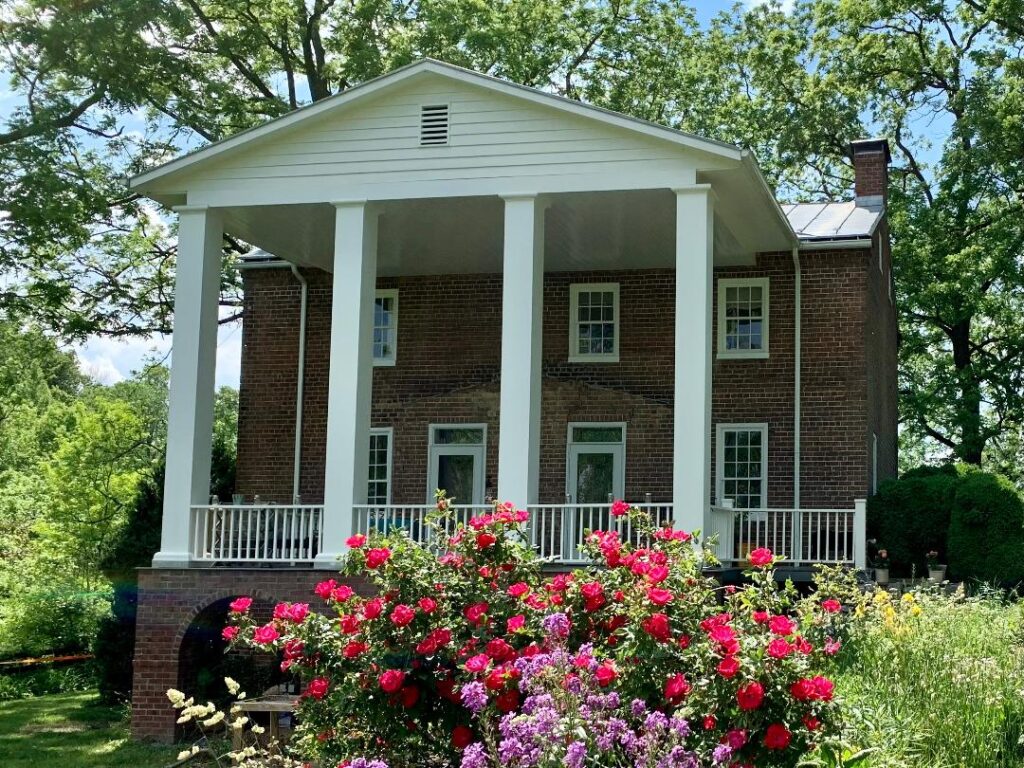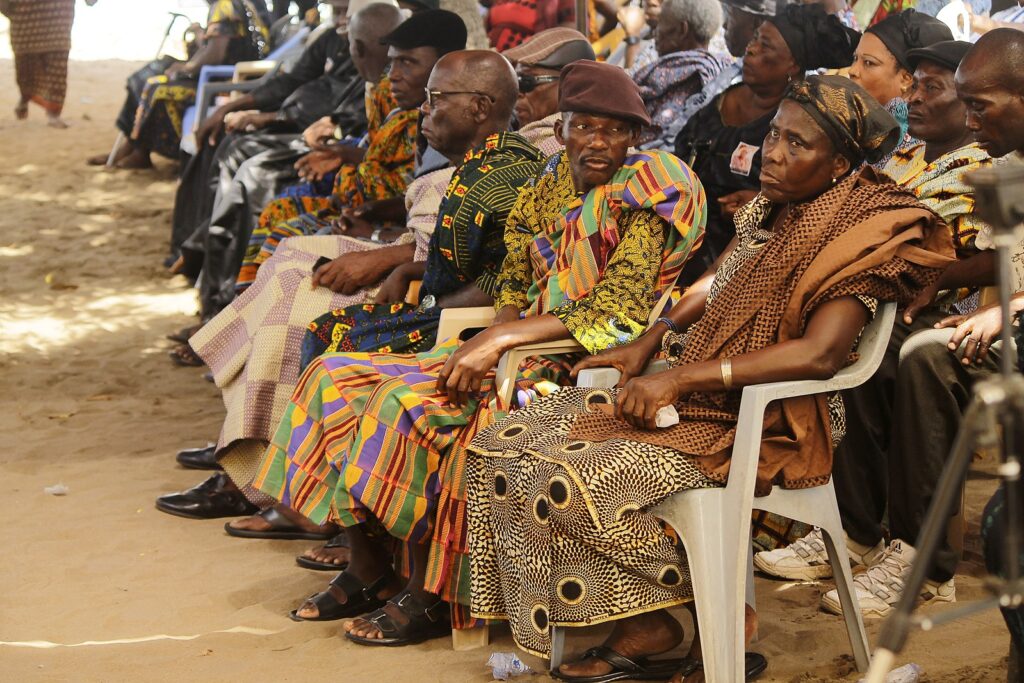A well-known healer in West Africa was visited one day by a tortured soul haunted by a dream of turmoil in the spirit world. Having heard a full account of these experiences, the healer responded: This is the wrong dream. Now you must return home and dream a dream of goodness and harmony. Happily, this healer had never heard of Sigmund Freud, but drawing on some other fund of insight, empowered the seeker by enjoining an act of will and confidence. The trip home with such authoritative words tattooed on the soul would have been a journey into something like wholeness.
I could not help but think of this healing encounter when hearing a family tale told at a kitchen table in the Shenandoah Valley of Virginia. The valley and the adjoining Blue Ridge mountains are bedecked now as though in expectation of a cosmic wedding. A sweet fragrance rides the air, an air fairly buzzing, not just with pollinators, but with those who tend the fields, orchards, livestock and truck gardens that make the valley a breadbasket.
As we sat at table, our host gestured toward a stack of hard-bound volumes devoted entirely to an account of the Civil War in the Shenandoah Valley; an exhaustive study of the ebb and flow of forces, the ferocity of the struggle, its appalling atrocities and consequences, which included ‘the Burning of the Valley’, not unlike the fate suffered by Atlanta and other locales during Gen. Sherman’s march to the sea.

The family lore of such ghastly events included oral memory of one scene on a Mennonite farmstead north of Harrisonburg, Virginia. As Confederate troops fell back under northern pressure, a detachment of Union cavalry rode onto the Jacob Wenger farm, brutalized strangers tasked to burn storage cribs and barns, any means of sustenance; men in blue with pistols and swords now staring down a horrified family of pacifists.
A nine-year-old daughter of the household, Barbara, stood beneath their gaze, cradling her infant brother, Timothy. The commanding officer dismounted, saying that he would like to hold the baby. The family recoiled in fear wondering what atrocity would follow. How could they entrust their dearest, most defenseless soul to one whose business is the spilling of blood? But nothing could be helped. The Yankee officer took the babe into his arms. There followed a work of transformation few could have anticipated. Gazing into the face of this cherub, a soldier fresh from combat is transported to another reality: to his own home and kin far away, to his own children. The warrior demeanor fell away at the glimpse of this other dream. Truculence is gone, arrogance dismissed, fear and torment banished, supplanted by an innocence rare to find midst the clamor of war: a dream of peace. The infant is passed – yes, sacramentally – from soldier to soldier working in each a redemption beyond the power of the most inspired healers, priests or commanders.
There is no family memory of the aftermath except that the family farm was spared. But one might imagine an ending. War in the valley did not cease, it is true. But perhaps one cavalryman, however decorated, returned to Union tents, and under cover of darkness folded his uniform neatly at the foot of his cot, a rifle laid beside it, and rode silently away, unable any longer to visit suffering on others, foreswearing, for love of an infant resting in his arms, the waging of war.*
Such is the dream a healer might exhort us to dream.
*The larger context of this cameo story raises troubling questions. The American Civil War was, after all, a struggle over slavery, a struggle for racial justice. And the unforgiving truth for generations was that the innocent faces of black infants, their fragile cries in the cities, log cabins and plantations of the South – including the exquisitely beautiful Shenandoah Valley – seemed powerless to effect among the powerful any change of heart, to conjure that other dream of ‘goodness and harmony’, of dignity and freedom for all. The West African healer might say to our generation, too, ‘You have dreamed the wrong dream. Return home. And dream, rather, the dream of shared goodness and harmony.’
A scholarly – and startling – study of the context of slavery in the American South is available at:
shorturl.at/hmCIY



Ah, yes.
True pacifists recognize the imperative of living that dream, of creating life anew through creative ways of being.
The babe, of any “race,” will transform a seeking heart.
Hello Mary Grace!! Thank you and agree!
Warmest wishes to you from Berlin, Germany!!
Douglas Fleming
Niandikie@gmail.com
Jonathan, a wonderful story!! Thank you so much!! And warmest to Mary Kay, from me in Berlin!
Doug
You nailed it. Dream the right dream.
Greg Hartman
Sadly, this nation perhaps more brazenly than the wold’s ‘others’ have yet to learn that mankind shall not live by physical power or ingenuity but by the power of innocence overwhelming the spirit of Might Makes Right. Would that there was such a moment in relation to the powerful over the victims in Ukraine.
I am startled to learn that I can will the subconscious to change a nighttime dream. Yes, this is good news to go home and dream a better story, to conjur a hopeful ending. And will the trauma fall over like dominoes with a flick of the finger…?…